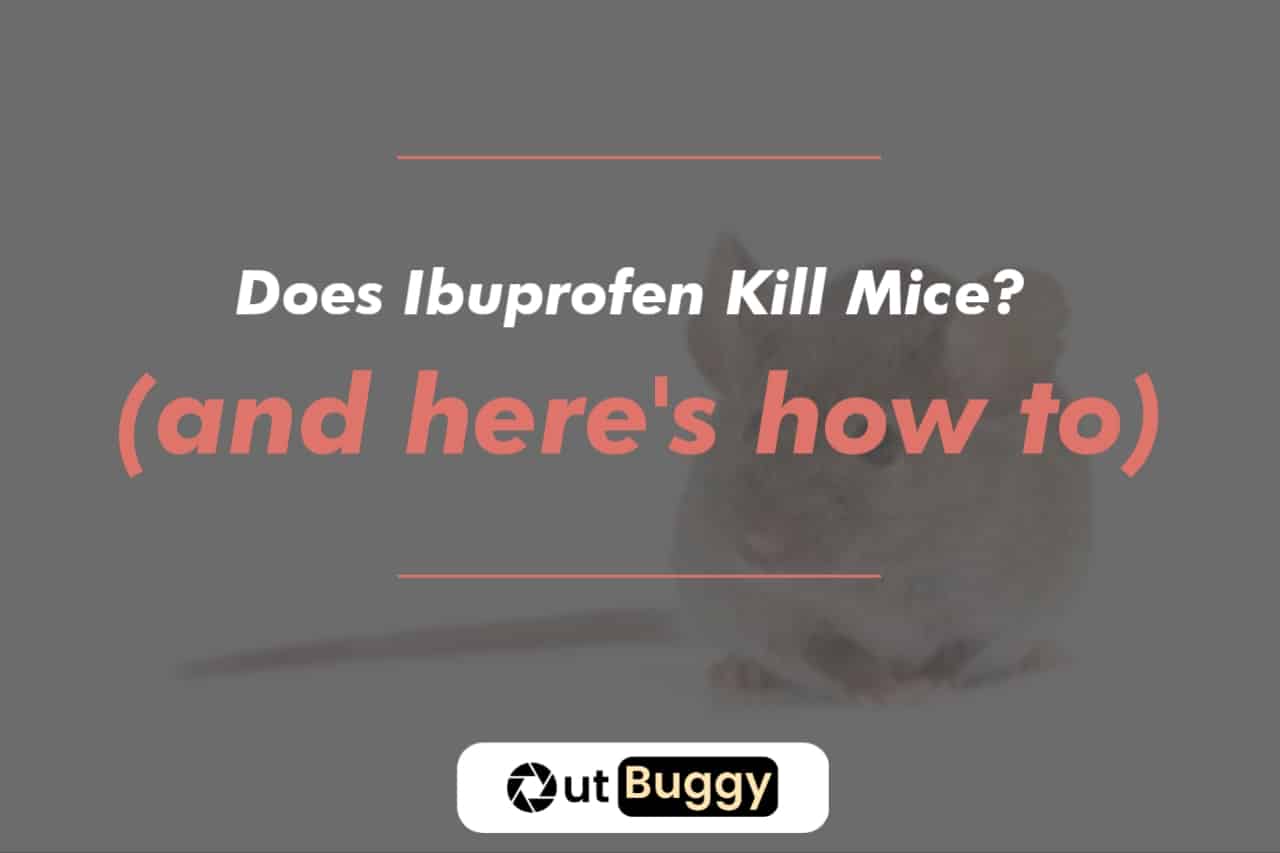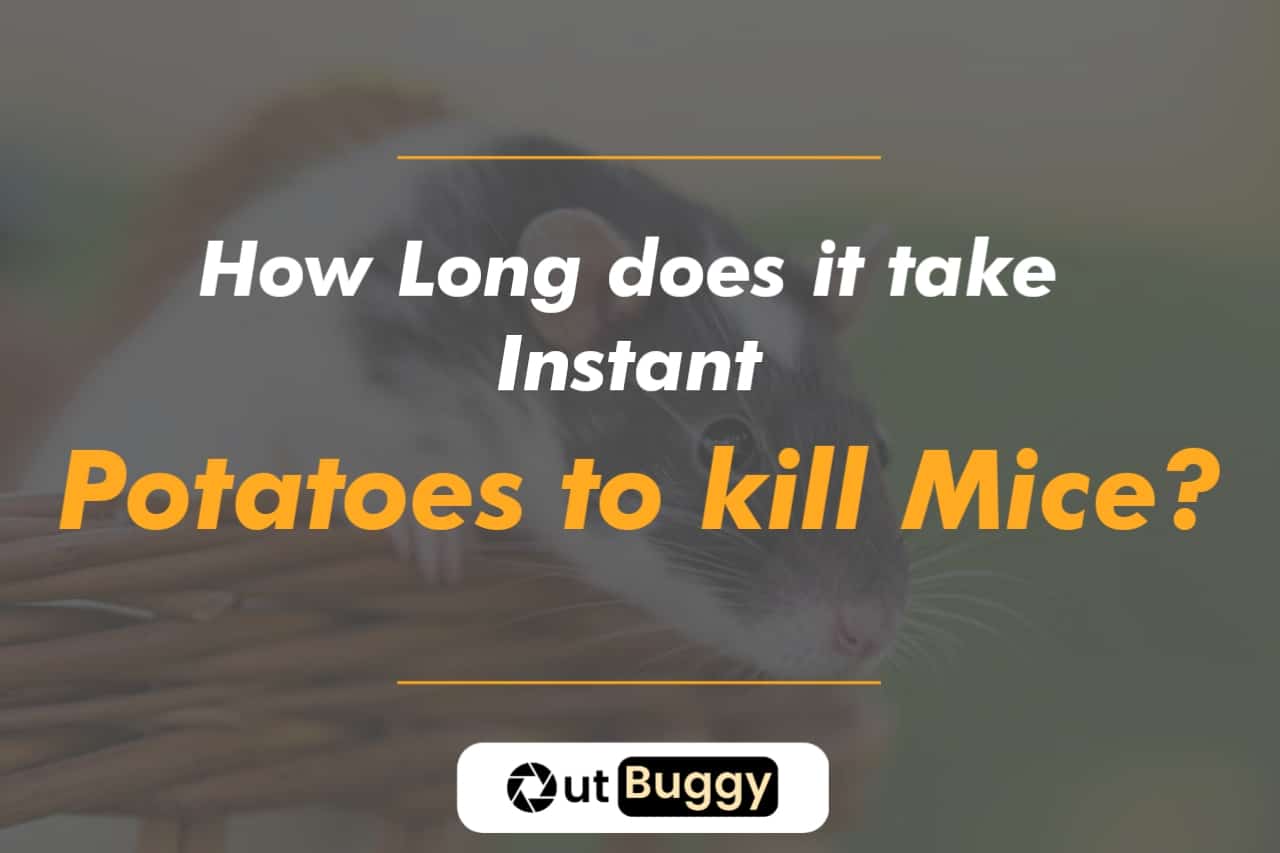Have you ever popped an ibuprofen to soothe a headache or ease a sore muscle? It’s a common over-the-counter pain reliever that millions of people around the world use every day.
But here’s a question you might not have considered: can ibuprofen be deadly to mice? Let’s take a look at this exclusively.
Contents
Does Ibuprofen kill mice?
Well, the answer is a bit complicated. While ibuprofen is generally safe for humans when taken as directed, it’s possible that it could be harmful to mice if they were to ingest it.
Studies have shown that high doses of ibuprofen over a long period of time can lead to liver and kidney damage in mice, and can cause ulcers and other gastrointestinal issues.
But before you start frantically hiding your ibuprofen bottle from any “pet” mice that might be lurking nearby, it’s important to remember that these studies used much higher doses than what would typically be used by humans.
This is not something new. Normally, there should be a negative reaction if a higher dosage of whatever drug is taken.
So, while it’s possible that ibuprofen could be toxic to mice in certain situations, it’s unlikely that a single pill or even a few pills would be enough to do any serious harm.
That being said, it’s always a good idea to keep any medication out of reach of pets and other animals, just to be safe.
And if you plan to use it for killing mice, then you could try, but it’s typically not going to work, as is the case for using salts for mice. Only a significant intake can cause the mouse to die, which is unlikely to happen as explained.
So, there you have it – the answer to the question of whether ibuprofen can kill mice is a bit more complicated than a simple yes or no.
Related: List of Foods that kill mice
With this, Is Ibuprofen still safe for Humans?
You might be surprised to know that ibuprofen can actually be deadly for rats in large doses. So what is the fate of humans that take them?
Well, the way ibuprofen works is by blocking the production of prostaglandins, which are chemicals in the body that cause pain, inflammation, and fever. So when you take ibuprofen, it helps relieve pain and reduce inflammation.
But, just like any medication, it’s important to read the label and follow the recommended dosage.
Taking too much ibuprofen can cause a range of side effects, from mild stomach upset to more serious problems like kidney damage or even heart attack or stroke. Yikes!
That’s why it’s always a good idea to talk to your doctor or pharmacist if you’re unsure about how much ibuprofen to take, or if you’re experiencing any side effects.
They can help you figure out the right dosage for your needs and let you know about any precautions or warnings you should be aware of.
And it’s not just about dosage either. If you have certain health conditions or take other medications, you might be more sensitive to the effects of ibuprofen. So it’s always a good idea to let your healthcare provider know about any other medications or supplements you’re taking, as well as any health conditions you have.
What Other Food or Drug Kill Mice?
If you have a pet mouse, you’d want to be careful with the foods they come across or you give to them, as there are certain foods that pose a threat to their life.
It’s worth mentioning, however, for people who would intend to use them to get rid of mice — they’re not actually applicable.
So let’s get to the list..
Chocolate is one food item that many people might not know is harmful to mice.
This sweet treat that we humans love contains theobromine and caffeine, both of which are toxic to many animals, including mice.
Their tiny bodies cannot process these substances effectively, which can lead to serious health complications, and in some cases, even death.
Onions and garlic are another potential threat.
These cooking staples contain compounds that can damage red blood cells in mice, potentially leading to anemia.
While it might be tempting to share a tiny piece of your dinner with your pet, it’s best to stick to mouse-friendly foods.
There are also stories that using food sources like instant mashed potato flakes do help kill mice. While there’s no factual correlation, it’s worth the try.
Moving on to drugs, just like with ibuprofen, many medications meant for humans or larger pets can be dangerous for mice. Acetaminophen, the active ingredient in Tylenol, is a prime example. Even in small doses, it can cause liver damage and can be lethal to mice.
Another one is Pseudoephedrine, a common ingredient in decongestants. It’s extremely toxic to many small animals, mice included, and can lead to a rapid heart rate, high blood pressure, seizures, and other severe symptoms.
Now, you might be thinking that you would never intentionally give these foods or drugs to your pet mouse.
nd you’re probably right. But accidents can happen, and these substances can sometimes be within a mouse’s reach without us even realizing it.
Therefore, it’s important to be aware of these risks and keep such items well out of reach of your furry friends. And remember, if your pet mouse seems unwell, your first call should always be to a trusted veterinarian.
Final Thoughts
To summarize, yes, ibuprofen can potentially kill mice.
If your concern is about your pet mice, always consult a veterinarian for proper medical advice. If, on the other hand, you’re looking for a solution for your mouse infestation, ibuprofen is also unlikely to do any magic.



